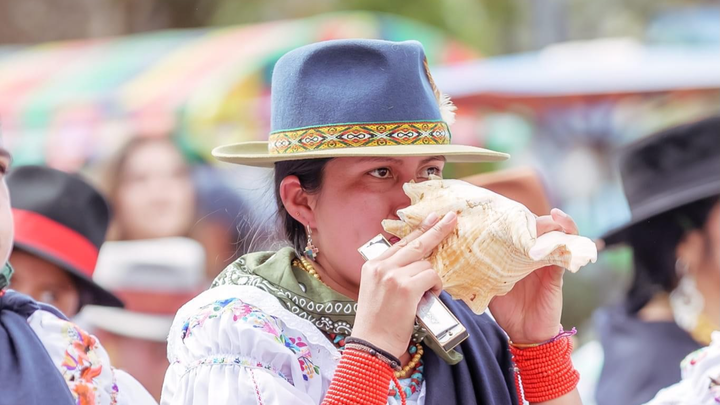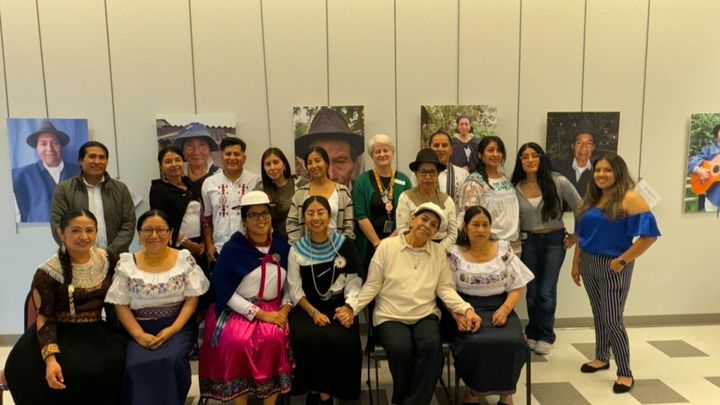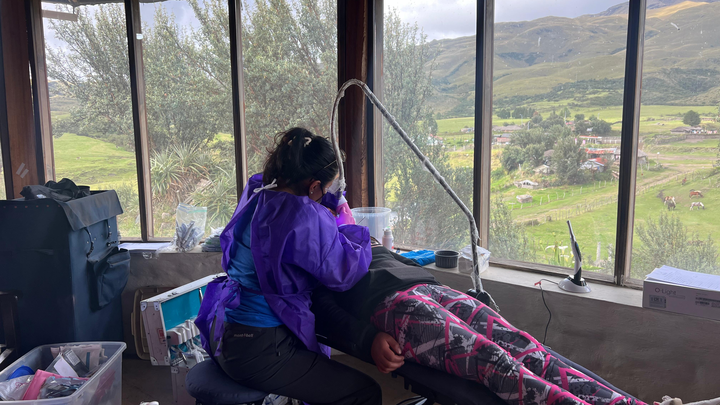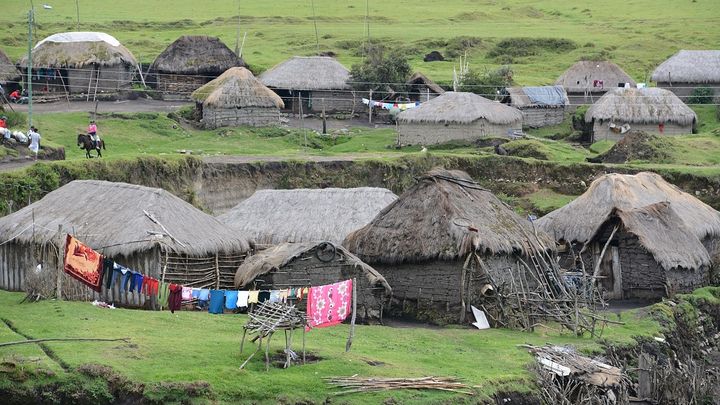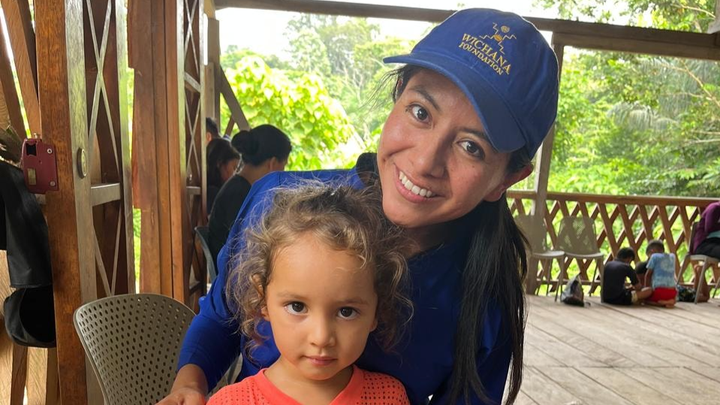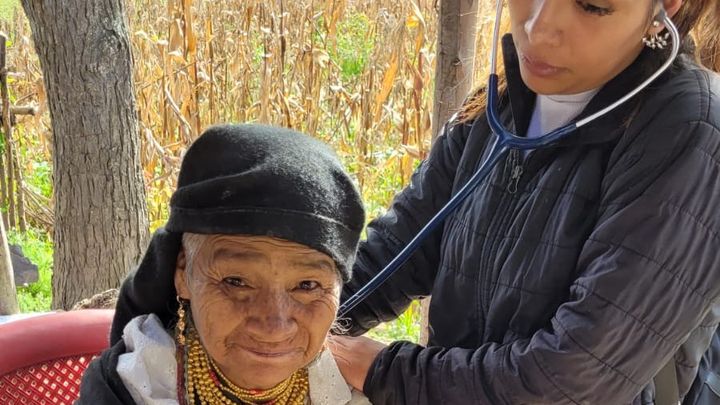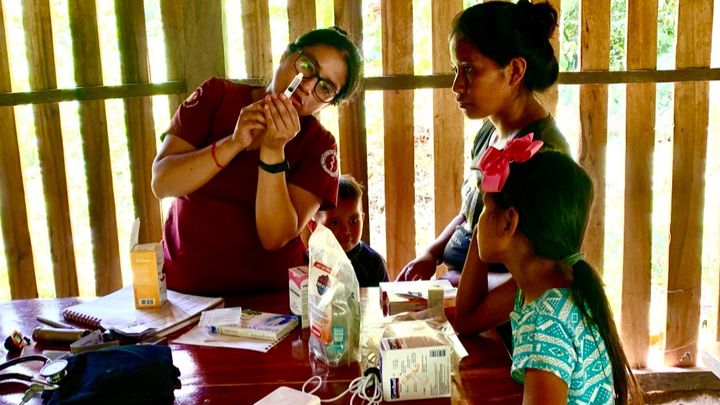Every year, nearly a million babies die worldwide within the first minute of birth because they are unable to take their first breath, and many others suffer lifelong complications. A large majority of these tragic outcomes occur in low-resource settings. But with proper training of birth attendants, and simple technology, they are preventable.
Thanks to donations from people like you, we have been providing that training and equipment to birth attendants in the highlands of the Ecuadorian Andes. Now, we are seeking additional funding so we can scale up our efforts and build capacity that will bring long-term health benefits to indigenous and other people in need. With even a small donation toward this effort, you can have a big impact.
In 2022, we launched a project called “Helping Babies Breathe in the Andes” to save the lives of indigenous and other newborns in the shadows of Ecuador’s towering volcanoes. It was a small pilot program involving about a dozen indigenous midwives, who received training designed to help them get newborns breathing within the “Golden Minute” — the first minute of life that is so crucial to their survival. We expanded in October of 2023, providing equipment and training to more than 50 physicians, midwives and nurses at two public, under-resourced hospitals. In 2025 we are scaling up our efforts to improve the health of newborns, as well as their mothers. From January 20th-February 4th our visiting experts will train 20 doctors and nurses how to manage the life threatening condition of maternal postpartum hemorrhage. In addition, we will begin training Master Trainers in a World Health Organization course called Essential Care of the Newborn. Ten Ecuadorian doctors and indigenous midwives will be trained to carry on the continued training of health care providers in their area. Under our mentorship, these Master Trainers in the Essential Care of the Newborn-the 1st of the World Health Organization's series of courses designed to Help Babies Survive (HBS)-- will then train 75 doctors and nurses in 3 public, under-resourced hospitals, as well as indigenous midwives.
To help us build on these successes, we are seeking your financial support so we can provide additional, expanded trainings. We are also asking for your help in scaling up a related initiative: “medical brigades” consisting of doctors, nurses, dentists and other volunteers who venture into remote indigenous communities to provide health and dental care to people who otherwise would likely go without it.
In this way, you can help give babies a good start in life and ensure they receive basic healthcare they need to thrive through childhood and adulthood.
MORE…
The “Helping Babies Breathe” program — “Samita Rikchachik” in the indigenous Kichwa language — teaches birth attendants how to respond quickly when a baby cannot take its first breath. The goal is to help the baby start taking breaths or to begin ventilation within the Golden Minute, the first 60 seconds after birth. As part of our program in Ecuador, volunteer trainers teach birth attendants how to recognize birth asphyxia, as well as techniques for getting a baby breathing, and how to use a hand-operated ventilator when other means fail.
We have done these trainings in collaboration with K’allam’p, an indigenous-led organization in Cotacachi, Ecuador. Their goal is to improve the health of indigenous community members.
“HBB achieves a significant impact on healthcare services while consuming fewer resources,” says Dr. Kaya Alta, Co-Director of K’allam’p. “The training of doctors and nurses in poor public hospitals can have a very significant positive impact on indigenous health.”
Dr. Alta also Dr. Alta also organizes medical brigades under the auspices of K’allam’p and Wichana to provide medical and dental care to remote indigenous communities. She believes it’s time to integrate these two efforts. Her reasoning is compelling: What good is it to save a baby’s life only to have that person die later, as a child or adult, from preventable issues?
Our aim in raising $15,000 is two-fold:
● To purchase materials and equipment for expanded Helping Babies Breathe training programs for doctors, nurses and midwives working in under-resourced public hospitals and indigenous communities. We also will train a cohort of Master Trainers in Ecuador, who can then carry on the work on a continuing basis, thereby helping to build capacity. The technology needed includes reusable, hand-operated ventilators, called upright newborn bag-masks; suction devices to remove obstructing fluids from a newborn’s nose and mouth; specially designed mannequins that help care givers learn how to use the equipment; and teaching materials that include flipcharts, action plans and guides.
This effort can help solve a big problem. In Ecuador, more than six of every 1,000 newborns die in the first 28 days of life, according to UNICEF. The number in remote, indigenous areas is likely higher. Many of these deaths are linked to complications during delivery. By comparison, the neonatal mortality rate in developed nations is much lower — nearly five times lower in Sweden, for example. With your help, we can reduce this glaring disparity and give babies in Ecuador a healthy start.
● After they get this start, we want to help provide the continuing care they need as they progress in childhood and adulthood. For that, we want to procure medicines and equipment to support medical brigade efforts in remote indigenous communities in the Amazon and the Andean Highlands, as well as to support local travel and expenses for those who volunteer their time to provide the medical care.
In Ecuador, poverty and income inequality affect indigenous, mixed race, and rural populations the most, contributing to a gap in life expectancy that persists between indigenous and non-indigenous people. With your donation, you can help bring desperately needed primary medical care, and dental services, to people who might not otherwise get it, and thereby help with this overall problem.
Our Helping Babies Breathe trainers are so committed to this cause that they volunteer their time and pay their own way to Ecuador. But we need funding to purchase and ship the necessary materials. The medical brigades are staffed by volunteer Ecuadorian care givers. Your donation can help support their travel to remote locations, and also to purchase vitally needed medicine, medical and dental equipment.
We hope you’ll join us in this vital effort! Your contributions are tax deductible through the Wichana Foundation, a U.S. tax-exempt 501(c)(3) organization.
More…
The Wichana Foundation supports community-based programs in Ecuador that benefit the health, education, and culture of community members. Funds are raised through individual donations, grants, and the sale of artisanal crafts.
K'allam'p is a partner project of the Wichana Foundation. It is an indigenous-led organization in Cotacachi, Ecuador focusing on improving the health of indigenous community members. Dr. Kaya Alta co-directs K’allam’p. As an indigenous woman, she provides quality care to patients who speak exclusively Kichwa. She also holds a master’s degree in Public Health.
About our trainers:
Patty Kelly is passionate about providing her expertise in underdeveloped countries throughout the world. While teaching nursing skills overseas, she witnessed many newborns in distress from the inability to breathe and other problems. That motivated her to participate in the initial training of U.S. master trainers of HBB. The American Academy of Pediatrics developed the Helping Babies Breathe training course for use in under-resourced settings. For the past 13 years she has worked as an International Master Trainer/Mentor in Helping Babies and Mothers Survive. Patty has taught more than 150 courses in 15 countries, and has trained well over 4,000 nurses, midwives and doctors. She has worked in global health for 23 years. Her mission is to save babies around the world by providing critical trainings that have proved successful.
Sylvia Fibich has worked in international public health and has been a certified nurse-midwife for nearly 40 years. During that time, she has helped bring many healthy babies into this world. She feels passionately that every baby should have a healthy start in life. Birth attendants can help ensure this — even babies with breathing problems in the first "Golden Minute" — but only if they have the proper skills and some simple equipment. Sylvia, has worked with K’allam’p for the past two years and has taught Helping Babies Breathe to doctors, nurses and midwives in Cotacachi and Otavalo, Ecuador.
